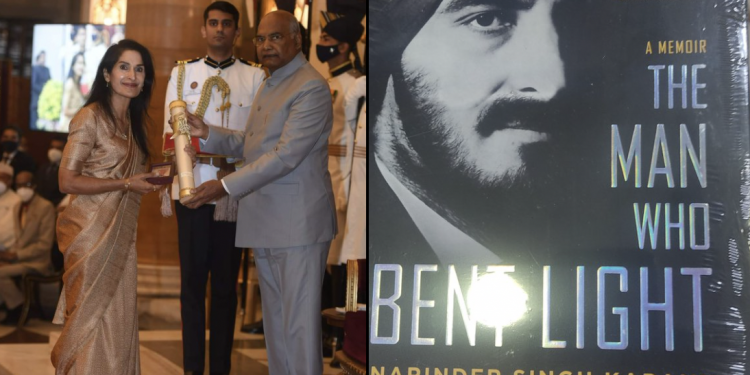The highest civilian honours in India, the Padma awards were recently conferred on 119 recipients in a ceremony by President of India Ram Nath Kovind. Padma Awards are presented to those who are working at the grassroots levels and who have rendered services to their communities and the society at large.
In recognition of his exceptional services in the field of ‘fibre optics’, Indian-American Narinder Singh Kapany was conferred on Padma Vibhushan, the second-highest civilian award by the Government of India posthumously. The Punjab born scientist coined the term ‘Fibre Optics’.
President Ram Nath Kovind presents Padma Vibhushan to Dr Narinder Singh Kapany (Posthumous) for Science and Engineering.
Everything you need to know:
Known as the ‘Father of Fibre Optics’, Narinder Singh Kapany was among the most distinguished Indian-American scientists. Graduated in India, he pursued his advanced studies in optics in London. Throughout his career, his research work focused on lasers, fibre optics, solar energy etc., and he held great interest in Sikh art and philanthropy activities.
He became a member of the US National Inventors’ Council and also founded a company Optics Technology Corporation where he led research projects in fibre optics for over 12 years. Later he also supervised research works at universities such as the University of California and Stanford University. With more than 100 patents, he authored more than 100 scientific research papers and four books.
He worked extensively in promoting and preserving Sikh art, education and also formed the Sikh Foundation and funded the preservation of several prized Sikh artworks. His foundation also publishes authentic Sikh research works, books, literature and art and also runs libraries to promote and preserve rare Sikh literature. He also started the Chair of Sikh Studies at the University of California in memory of his late mother.











